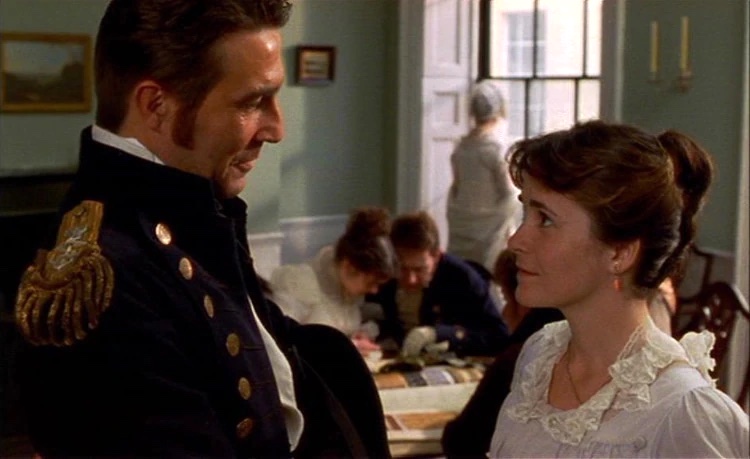Note: If you wish to receive, via e-mail, (1) my weekly newsletter or (2) daily copies of these posts, notify me at [email protected] and indicate which you would like. I promise not to share it with anyone.
Thursday
Yesterday I wrote about how we have been using our current trip to revitalize friendships. Because our talks have been so rich and substantive, I was put in mind of an interchange that Anne Elliot has with her cousin in Persuasion. Ann is a profound woman of substance, Mr. Elliott a shallow social climber, so it makes sense that she would opt for Aristotle’s friendships of virtue whereas as he would come down strongly for friendships of utility.
Ann’s superficial father and sister have been falling all over themselves to attract their distant cousins, the high-born Lady Dalrymple and her daughter Miss Carteret. Ann is embarrassed that such a fuss is being made over two people who have “no superiority of manner, accomplishment, or understanding.” As Austen puts it,
Lady Dalrymple had acquired the name of “a charming woman,” because she had a smile and a civil answer for everybody. Miss Carteret, with still less to say, was so plain and so awkward, that she would never have been tolerated in Camden Place but for her birth.
Mr. Elliott, however, says they have value and are worth cultivating “as a family connection, as good company, as those who would collect good company around them.” To this Ann replies,
“My idea of good company, Mr Elliot, is the company of clever, well-informed people, who have a great deal of conversation; that is what I call good company.”
“You are mistaken,” said he gently, “that is not good company; that is the best. Good company requires only birth, education, and manners, and with regard to education is not very nice. Birth and good manners are essential; but a little learning is by no means a dangerous thing in good company; on the contrary, it will do very well. My cousin Anne shakes her head. She is not satisfied. She is fastidious. My dear cousin” (sitting down by her), “you have a better right to be fastidious than almost any other woman I know; but will it answer? Will it make you happy? Will it not be wiser to accept the society of those good ladies in Laura Place, and enjoy all the advantages of the connection as far as possible? You may depend upon it, that they will move in the first set in Bath this winter, and as rank is rank, your being known to be related to them will have its use in fixing your family (our family let me say) in that degree of consideration which we must all wish for.”
None of our friends provide us advantages of the sort Mr. Elliot has in mind. But all are “clever, well-informed people, who have a great deal of conversation.” When I am with them, there is no place I’d rather be.
